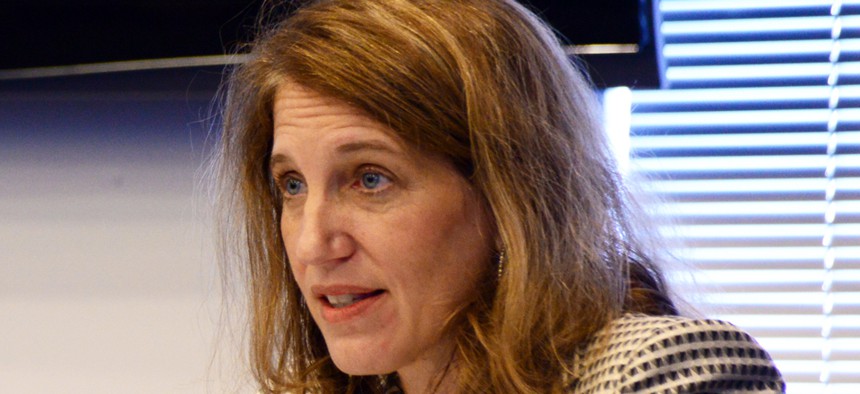
HHS
A Smooth Second Start for Healthcare.gov
More than 100,000 people submitted applications during the first weekend of year two, but controversial comments from Jonathan Gruber and a new polling low kept things complicated for the law.
With no outages and more than 100,000 people submitting applications for insurance, federal health officials proclaimed the first weekend of Healthcare.gov's second year a success on Monday.
The lack of widespread horror stories a year after the website's dysfunctional debut allowed the Obama administration to breathe a sigh of relief after it raised expectations for technical improvements it made ahead of the second open enrollment period. There were some reports of people having trouble with their passwords, but it was nothing compared to the outages, overloads, and constant error messages that plagued the launch in 2013.
Sylvia Burwell, the secretary of Health and Human Services, said Monday morning that more than 1 million people had visited Healthcare.gov over the weekend, on top of the more than 100,000 who submitted applications on Saturday, the first day that people could sign up for coverage.
Yet as with anything involving the polarizing 2010 law, the news became a bit more complicated. Rather than solely promoting the website, top officials from President Obama on down spent the weekend criticizing or outright dismissing the comments of a former administration health adviser, Jonathan Gruber, after videos surfaced in which he said the law passed in part because of the "stupidity of the American voter." Republicans have seized on the remarks and are likely to hold hearings on them, while Obama and Burwell downplayed Gruber's influence on the crafting of the law.
"The fact that some adviser who never worked on our staff expressed an opinion that I completely disagree with in terms of the voters, is no reflection on the actual process that was run," Obama said Sunday during a press conference at the G20 summit in Australia. The president insisted he did not mislead the public as Gruber suggested. But Obama's scoffing reference to the economist may have understated the role of a man who earned nearly $400,000 in consulting contracts from the administration during the time when the Affordable Care Act was being written. Because of Gruber's involvement with Mitt Romney's healthcare plan in Massachusetts, Obama administration officials and Democrats in Congress frequently cited his work on the federal plan back when his public comments were more favorable.
The launch of the second enrollment period also coincided with a new Gallup poll finding that support for Obamacare had dropped to an all-time low of 37 percent, with 56 percent of respondents disapproving of the law. That poll followed a separate Gallup survey that showed more promising results for the administration, as more than seven out of 10 people who bought insurance through the government exchanges in the last year were satisfied with their plans.
Taken together, the numbers underscore a dynamic that's been visible for most of the law's history: It fares better among people who have gained coverage or direct benefits from it than among the population at large, who may believe it contributes to higher healthcare costs for consumers and businesses. The Obama administration has long argued that the law would become more popular as time went on, but so far that has not broadly been the case.






